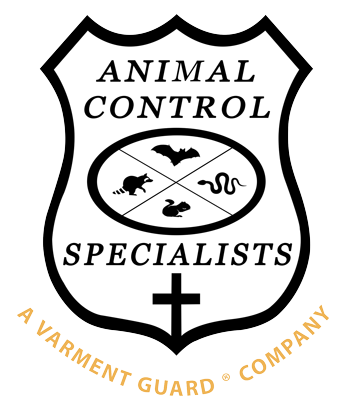One common misconception about wildlife control is that it involves killing or exterminating animals. In reality, wildlife control aims to manage and prevent conflicts between humans and wildlife while promoting coexistence. Methods such as exclusion, habitat modification, and repellents are often used to deter animals from human-occupied areas without causing harm. Another misconception is that relocating animals is a viable solution. However, studies have shown that relocated animals often struggle to adapt to new environments, leading to stress, injury, or death. Additionally, relocating animals can spread diseases and disrupt established social structures. It is important to understand that wildlife control focuses on finding long-term solutions that prioritize the welfare of both humans and animals.
Debunking Common Misconceptions About Wildlife Control
1. Wildlife control is only necessary in rural areas
Contrary to popular belief, wildlife control is not exclusive to rural areas. While it may be more prevalent in these regions due to the proximity to natural habitats, urban and suburban areas also face wildlife-related issues. Animals such as raccoons, squirrels, and even bats can find their way into urban environments, causing damage and posing risks to human health. Therefore, it is essential for both rural and urban dwellers to be aware of wildlife control measures.
2. Wildlife control is unnecessary if animals seem harmless
Even if animals appear harmless at first glance, it is crucial to remember that they are wild creatures. Many animals, such as raccoons and skunks, can carry diseases like rabies. Additionally, they may cause structural damage to homes and gardens. Thus, it is unwise to assume that a seemingly harmless animal poses no threat. Proper wildlife control measures should be taken regardless of the animal’s behavior.
3. Trapping and relocating animals is the best solution
While trapping and relocating animals may seem like a humane solution, it is often not the most effective one. Many states have regulations that prohibit the relocation of certain species due to concerns about the spread of diseases or disruption of ecosystems. Moreover, relocated animals often struggle to adapt to new environments and may not survive. Instead, professional wildlife control operators focus on exclusion techniques that prevent animals from entering properties in the first place.
4. Home remedies and repellents are effective for wildlife control
There is a plethora of home remedies and repellents suggested for wildlife control, but their effectiveness is often exaggerated or simply nonexistent. Mothballs, ammonia-soaked rags, and ultrasonic devices are commonly recommended, but they rarely provide long-term solutions. In fact, some animals may become habituated to these repellents, rendering them ineffective. It is best to rely on professional wildlife control operators who have the knowledge and experience to implement proper exclusion techniques.
5. Wildlife control is a one-time task
Wildlife control is not a one-time task; it requires ongoing vigilance and maintenance. Once animals have gained access to a property, they may leave behind pheromone trails, nesting materials, or even offspring that can attract future generations. Therefore, it is essential to not only remove the animals but also address the root causes of their presence and take preventative measures to ensure they do not return.
6. Wildlife control is a DIY job
While there are numerous DIY methods available for wildlife control, it is often best to leave this task to professionals. Wildlife control operators have the necessary expertise, equipment, and understanding of local regulations to effectively and safely handle wildlife-related issues. Attempting to handle wild animals without proper training can be dangerous and may result in unintended consequences.
7. Wildlife control is expensive
While wildlife control services do come at a cost, the expense should be seen as an investment in protecting your property and ensuring the safety of your family. Professional wildlife control operators can tailor their services to your specific needs and budget. Moreover, addressing wildlife-related issues promptly can help prevent more extensive damage that would require costlier repairs in the future.
8. Wildlife control is purely about removing animals
Wildlife control is not solely about removing animals; it also focuses on long-term solutions to prevent their return. Professional wildlife control operators employ various techniques such as sealing entry points, installing exclusion devices, and implementing habitat modifications to discourage animals from returning. By addressing the root causes of wildlife intrusion, these professionals provide comprehensive solutions that protect both properties and wildlife.
Remember, when it comes to wildlife control, it is always best to consult with professionals who have the knowledge, experience, and resources to handle these situations effectively and responsibly.
Contact For Wildlife Control Help
If you are in need of animal removal services, don’t hesitate to give us a call today. At Animal Control Specialists, LLC, we understand the urgency and importance of removing unwanted wildlife from your property. Our team of experienced professionals is equipped to handle a wide range of animal removal situations, ensuring the safety and well-being of both you and the animals involved. With our prompt and efficient services, you can have peace of mind knowing that your wildlife problem will be resolved effectively. Contact us now at (330) 608-1718 to schedule an appointment or to learn more about our services.
